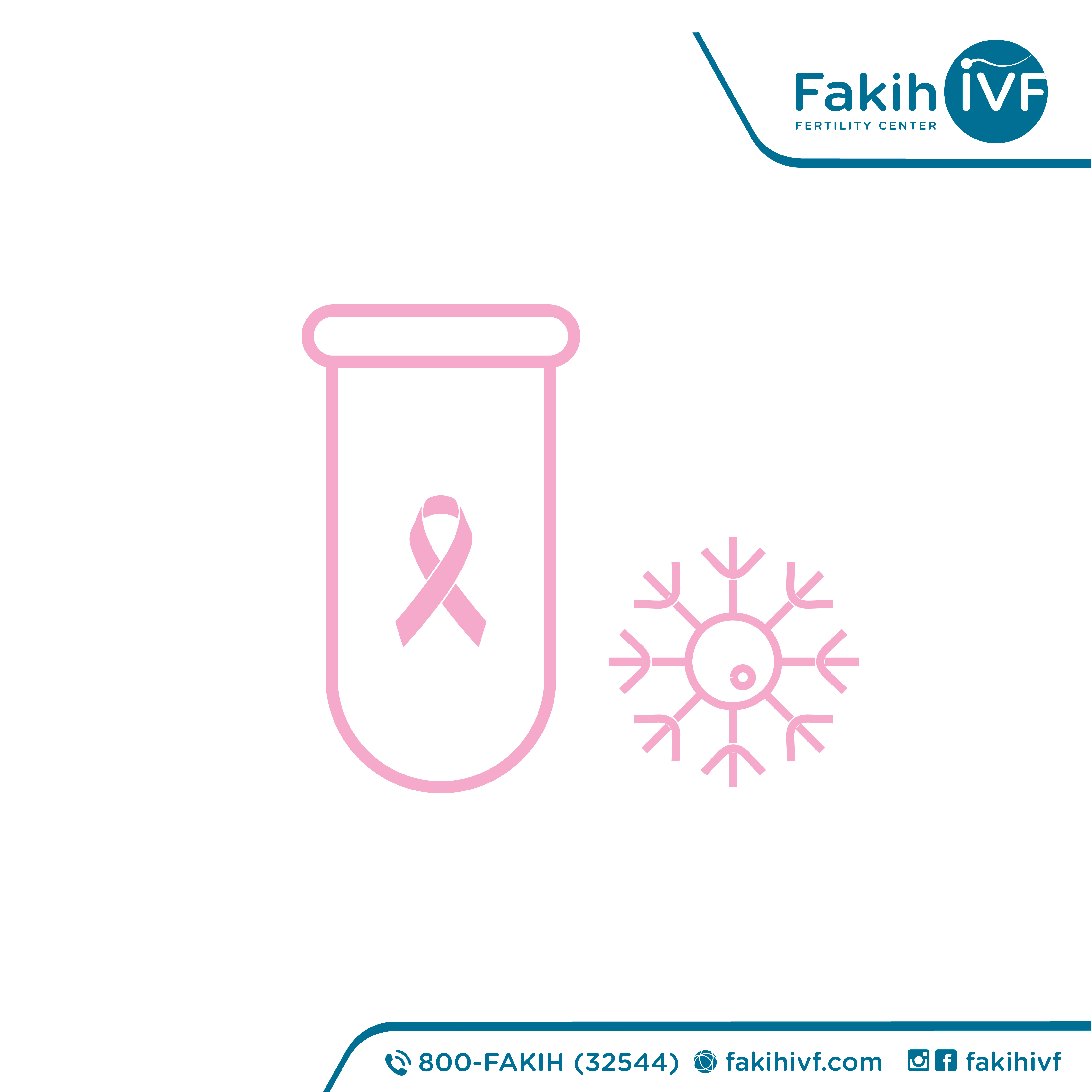


 October is Breast Cancer Awareness month, how you can preserve your fertility from breast cancer treatments.
October is Breast Cancer Awareness month, how you can preserve your fertility from breast cancer treatments.
Advances in the diagnosis of breast cancer have led to earlier detection while combined therapy has rendered many smaller tumors potentially curable in a high percentage of cases. Since 15% of new breast cancer cases occur before the age of 45, a large number of women receive the diagnosis before they have completed or even begun building their families. Hence, preservation of fertility ranks high on their list of priorities.
Treatments for breast cancer can bring about early or ‘premature’ menopause (stopping menstrual cycles before your body would naturally), and so can cause temporary or permanent infertility.
If you’re going to have chemotherapy, a referral to a fertility clinic before treatment starts is essential and will help you understand your options.
In females who were fertile before treatment, the body may recover naturally after treatment. It may be able to keep or restore normal hormonal cycles. And produce mature eggs that can be fertilized and implanted into the uterus to become a fetus. The medical team may recommend waiting anywhere from 6 months to 2 years before trying to get pregnant. Waiting 6 months may reduce the risk of birth defects from eggs damaged by chemotherapy or other treatments. The 2-year period is generally based on the fact that the risk of cancer coming back (recurring) is usually highest in the first 2 years after treatment. The length of time depends on the type of cancer and the treatment used.
Chemotherapy and radiation can dramatically increase your risk for infertility. Both of these treatments can destroy eggs — so much so that many women may become prematurely menopausal after cancer treatment.
The continuing progress in assisted reproductive technologies has led to a wide range of options available for the preservation of fertility in women with breast cancer.
Egg freezing is an effective way to help preserve fertility for women. This may be a good choice for women who are suffering from breast cancer.
For egg freezing, mature eggs are removed from the female and frozen before being fertilized with sperm. When the woman is ready to try to become pregnant, the eggs can then be thawed, fertilized by a partner’s and implanted in her uterus to try to achieve pregnancy.
Your decision to freeze eggs may delay cancer treatment for a couple of weeks, while fertility drugs stimulate egg production. The eggs are then retrieved and frozen for later use. The health care team recommend using a fertilization technique called intracytoplasmic sperm injection (ICSI).
Our doctors can help you understand how egg freezing works, the potential risks and whether this method of fertility preservation is right for you based on your needs and reproductive history.
Women suffering from Breast Cancer now should not be worried about their chances of getting pregnant as they have an option of preserving their fertility so they can enjoy their motherhood in the future. The gynecologic oncologists and fertility experts work together to coordinate your care and ensure that, egg freezing is a safe option for you.